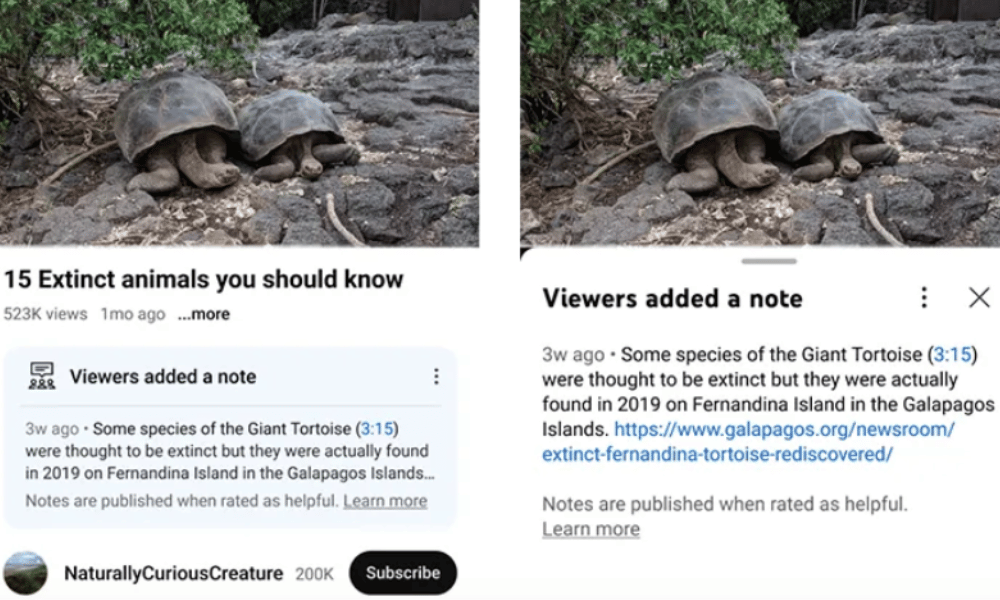Tech
YouTube Experiments with Viewer-Added Context for Videos

Imagine you’re watching a product review, but the gadget in question has a newer version out. Or maybe you’re chuckling at a video, only to realize later it’s actually a parody! To combat confusion and provide on-the-spot explanations, YouTube is testing a new feature that lets viewers themselves become video annotators.
This isn’t your typical highlighting tool though. Think of it as adding sticky notes packed with info directly on the video. Viewers can shed light on parodies, point out crucial updates in reviews, or even debunk outdated footage masquerading as current events.
This feature builds on YouTube’s existing toolbox of context clues, like those info panels you see sometimes. It’s like adding real-time footnotes to the vast library of YouTube videos.
The experiment starts small, limited to mobile devices in the US and English for now. The team expects some bumps along the way, with notes that might miss the mark or contain inaccurate info. But that’s part of the learning process! Viewers, the note-writing contributors, and even video creators are all invited to chime in with their feedback. This input will help YouTube refine the feature and decide if it’s worthy of a wider release.
Who gets to be a YouTube explainer?
Don’t worry, you won’t need a professorial degree. Initially, a select group of viewers with channels in good standing will be invited to leave their informative notes. This helps YouTube test the waters before opening it up to everyone.
US viewers will soon see these explanatory notes popping up on videos. To ensure they’re actually helpful, a team of outside experts, similar to those who give feedback on search results, will assess their quality. As the experiment progresses, the note-writing contributors themselves might even get to join the rating party.
How do these video annotations get picked?
Not all notes are created equal. Those deemed generally helpful by viewers will get pinned right under the video. Viewers will be asked to weigh in – is the note a lifesaver, just okay, or totally off-base? They can even explain their rating, highlighting if the note uses trustworthy sources or keeps things clear and unbiased.
Here’s the cool part: a special algorithm analyzes these ratings. Moreover, but it considers something unique – how people with different viewpoints react to the note. If viewers who usually disagree on notes find a particular one helpful, that note is more likely to get shown. As more notes are written and rated across various topics, this system will continuously learn and improve.
With this experiment, YouTube is aiming to supercharge the context viewers receive while navigating the platform’s massive video library. They’re eager to hear from viewers, contributors, and creators in the coming months as they strive to make YouTube a place with even clearer and more reliable information.
